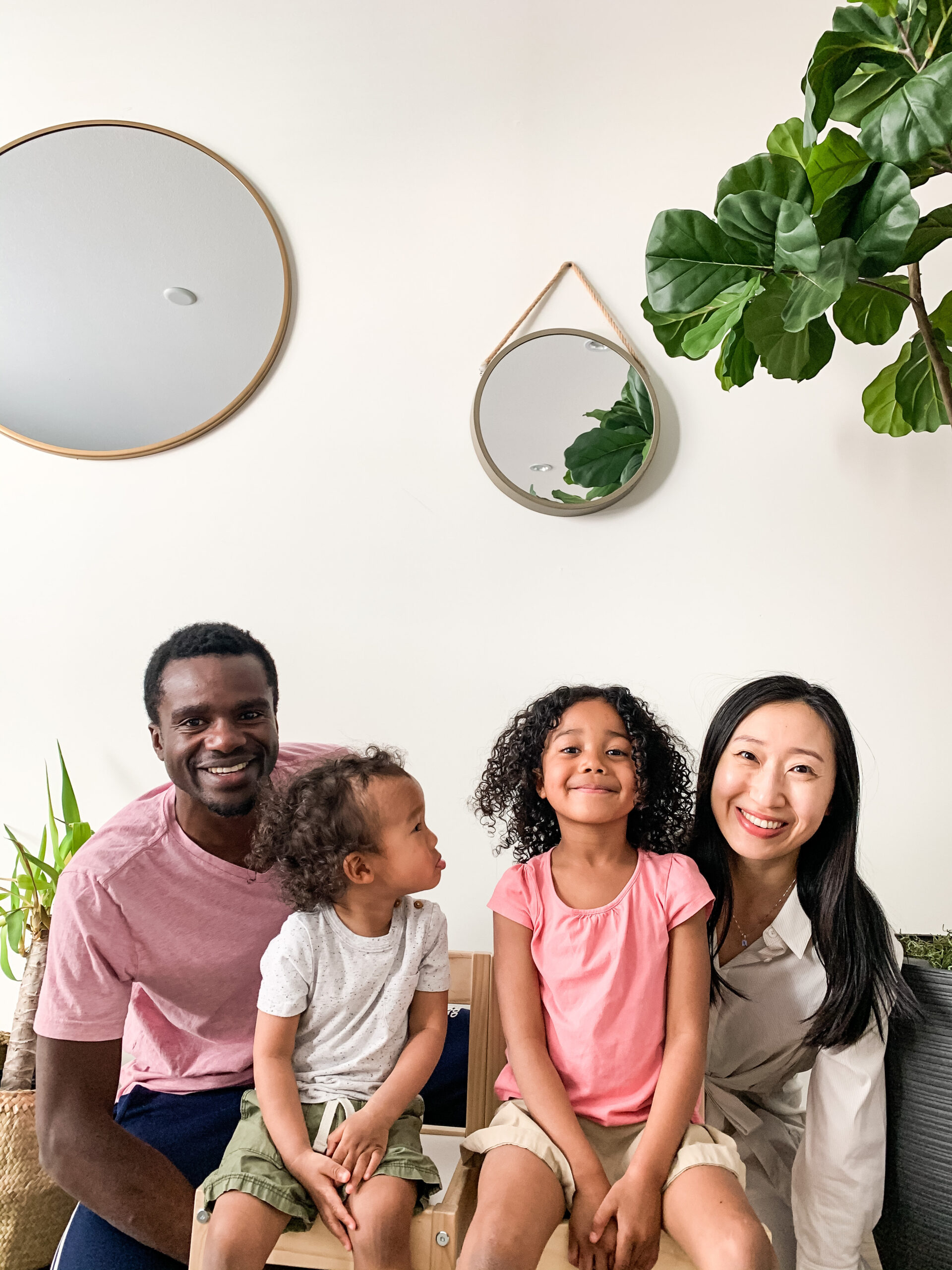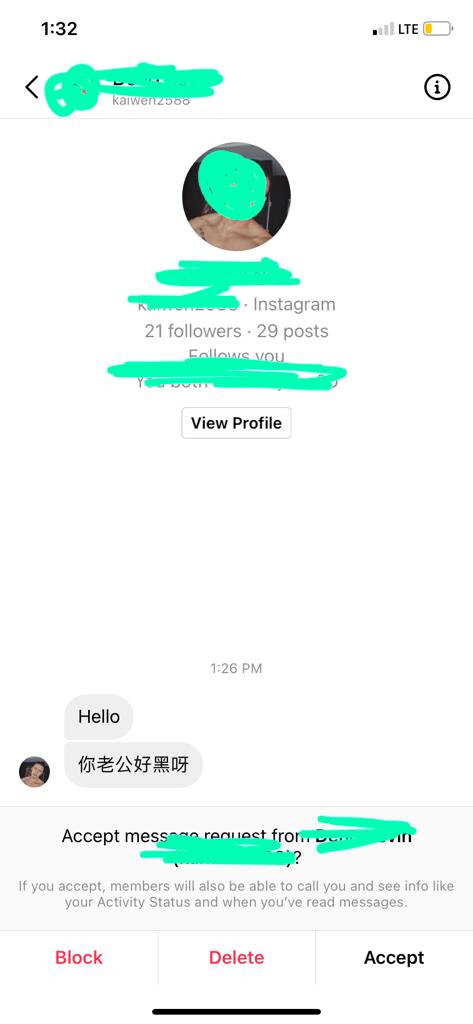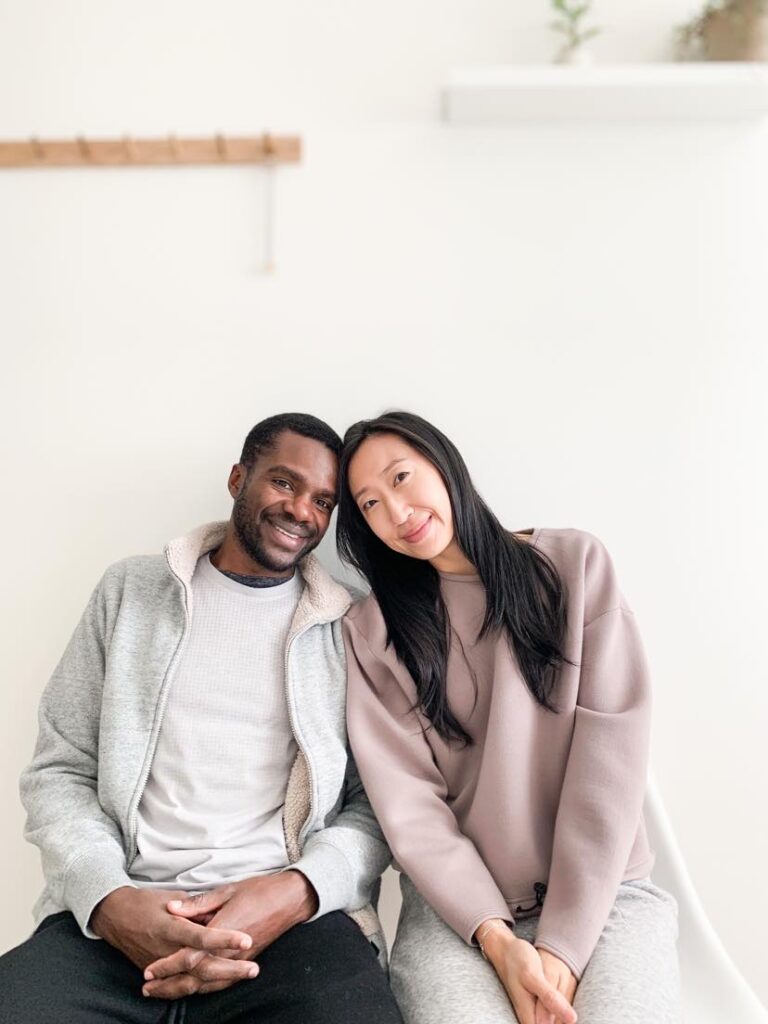
The “blackness” comments
A while back, I received a DM on Instagram that almost had me choke on my morning coffee. I know that it’s not uncommon to get weird messages on social media, and some trolls are really just here with the simple goal to offend everyone. This message, however, was just downright ignorant and borderline comical.
“Your husband is so black.”

First off, I know a scamming account when I see one. Obviously, he wasn’t hoping to strike up a conversation about race. And I’m still not sure what kind of reaction he expected to trigger in me. But let’s just say that I laughed it off and went on with my day completely unaffected by it. Still, this isn’t the first time I received such a comment. Upon seeing us, some people, from acquaintances to strangers would turn to me and say, “Wow, he’s black.” Most of these people come from parts of Asia, where I suppose don’t really meet many Africans on a daily basis. And every time I hear this, I sort of flinch and usually try to redirect the conversation as not to make this more awkward for everyone involved. And the more I encounter these type of interactions, the more I realize that these people can generally be divided into two categories.
Type 1: They’re fishing for a reaction, and not the good kind
Unfortunately, I do encounter some folks who can’t seem to get off their high horse and appear to think that it’s okay to meddle in my decision of marrying a black, Tanzanian man. They also like to make assumptions of what type of a man my husband is. Other comments like, “He must be very special for you to want to be with him,” absolutely drive me nuts. It is as if they’re saying that our disparity is so big, that his African background somehow is the detrimental chasm between us that only a ‘special’, magical component could bridge. No, no, and no. That sounds like a compliment, but with a thousand daggers hidden beneath a beautifully adorned cloak. The first time I heard this, I didn’t know what to say, so I just smiled my way out of it. And I beat myself up for remaining silent. Afterwards, I didn’t bother to make the effort to be so courteous. I simply turn to them and ask what they meant by it. ‘

Type 2: They are genuinely shocked and curious
It’s easy for me to conclude that everyone’s racist and deliberately ignorant of the beauty of interracial relationship, but I also know that oftentimes, words don’t always deliver our true intentions. By looking at people’s faces when they make “Your husband is black” comment, I could pretty much tell whether they’re being malicious (however hard they try to hide it, the eyes don’t lie), or if they’re genuinely curious how we came to be together. After all, for some, it is just unheard of in their community. And here is my chance to really dismantle their misconception about interracial, blasian relationships. I talk about our similarities and about how some Asian and African culture actually share some of the same values and traditions. Our respect for elders, the practice of traditional medicine, and how in both cultures, relationships are often forged over shared meals. The Japanese saying of “The child of a frog is a frog,” is almost identical to that of a Malagasy proverb, “The child of a rat is a rat.”
As we enter into our 9th year of marriage, my husband I constantly find similarities between our Tanzanian and Taiwanese cultures. And the discovery usually delights us to no ends. Because not only do we love each other, we also have the backing of our ancestors and respective histories.
So, bring on the weird, awkward comments. Tackling them is not always fun, but the results are oftentimes rewarding. We can all change the world around us, little by little.



